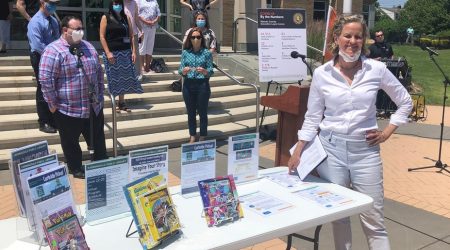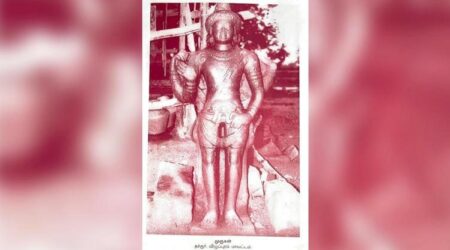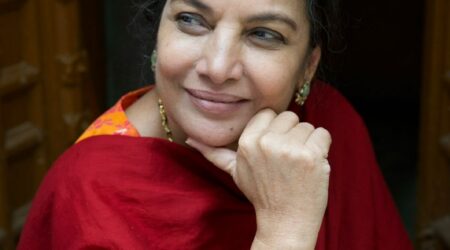Report by Prof Heather M. Butts
Assistant Professor and Director of Honors College, LIU

The Long Island University community was treated to an enlightening virtual talk on November 12 from Dr. Sulekh C. Jain on Jainism. Dr. Nathaniel Bowditch, Dean of LIU’s College of Liberal Arts and Sciences, introduced Dr. Jain, who has a doctorate, to those in attendance. Dr. Jain is exceptionally accomplished. He is a Board member of the Mahatma Gandhi Library in Houston, and has written more than 60 articles on Ahimsa (non-violence), Mahatma Gandhi and Jainism. In 2004, he co-founded the International School for Jain Studies.
Dr Sulekh Jain was invited to speak at LIU as part of the Dr. Shailendra Palvia Endowed Jain Scholar Speaker Series, which was established through a gift from Dr. Palvia, Professor of Management Information Systems at Long Island University. The Speaker Series occurs each semester in the form of a seminar conducted by a Jain scholar on a topic related to one of the three Jain religion philosophies: Ahimsa (non-violence); Anekantvada (respect for diverse viewpoints) and Aparigraha (living with less and using resources wisely).
Dr. Jain, who joined us from his home in Nevada, began the talk by welcoming everyone and acknowledging the audience. About 60 people were in attendance from LIU, USA, Canada and India; they were a mixture of faculty members and students from LIU, as well as professors, doctors, entrepreneurs, and executives from the Jain community. Dr. Jain started his remarks by recalling his move to Houston over 40 years ago. He noted that when he moved to Texas, while there was a clear population of Jain families, there was no Jain organization in existence. In 1981, he founded the Jain Society of Houston. Today it has over 850 families as members.
Given the audience’s diversity, Dr. Jain gave an overview of Jainism for the group. According to Dr. Jain, Jainism/Jain Dharma “…has been a vital part of the mainstream of ancient Indian life, contributing greatly to its political, economic, artistic and political heritage, influencing all aspects of Indian life over three millennia.”
Dr. Jain went on to state that “the Jain tradition, which enthroned the philosophy of ecological harmony and non-violence as its lodestar, flourished for centuries side-by-side with other schools of thought in ancient India.” During certain periods of Indian history, many ruling elites, as well as large sections of the population were Jains. With understandable pride, he recounted that the Jain community has produced scholars, authors, philosophers, engineers, doctors, scientists, teachers, attorneys, publishers, filmmakers, and social activists as well as in many other areas of importance.
Dr. Jain then transitioned to discuss the importance of Lord Mahavira. Mahavira means “great hero.” He was a great yogi and mediator. He led a nonviolent reform movement. He was also “A great Social Engineer; Crusader for Women; Emancipation and Women Rights; Crusader Against Animal Sacrifice; Crusader Against Caste System.”
The speaker also delved into the three As or three democracies of Jainism:
- Ahimsa
- Anekantvada
- Aparigraha
With respect to Ahimsa, Dr. Jain talked about spiritual independence and equality of life, with emphasis on non-violence as it relates to Ahimsa. “Self-control, compassion and non-possessiveness are vital for spiritual progress, which eventually leads to the realization of the true nature of the soul that leads to liberation.” This notion clearly ties in with destiny, and the belief that far from being controlled by an external power, we are all in control of our own destinies. The hallmark of Ahimsa is to refrain from causing injury or harm or abuse to anyone.

The Jain tradition, which enthroned the philosophy of ecological harmony and non-violence as its lodestar, flourished for centuries side by side with other schools of thought in ancient India.
Specifically, Ahimsa means not hurting anyone
- mentally, verbally, or physically
- directly or indirectly
- knowingly or unknowingly
- intentionally or unintentionally
Dr. Jain then transitioned to discussing Prasparopagraho Jivaanaam. This was a particularly interesting view, thinking through the journey we all travel and that none of us go through the journey of life by ourselves. He juxtaposed this philosophy with our current situation with COVID-19 and an understanding that we are all truly interconnected and dependent on each other. The pandemic has very clearly shown us that. It has also shown us that our very existence relies on each other and that, whether we admit it or now, we are all linked with one another.
Dr. Jain ended his talk with a quote from Professor Donald Davis, of University of Texas at Austin, about Jain Dharma — “it offers a different pair of eyeglasses or prisms through which to view the world, its problems, and opportunities.”
The rest of the seminar was devoted to questions and answers. There were a number of questions from the audience. One question dealt with non-violence and the notion that all entities that are living should be respected, whether it is a plant or an ant or human being. Jains respect all life. The tiniest of creatures must be respected and this was reiterated in the question and answer period. One respondent during the Q&A stated, “I just want to add, if you think that the plant is the life, like yourself, then you would not want to kill it, if you have a mental disposition to being friendly to everything around you.”
Other interesting questions related to how Jainism views different religions and religious figures. A final question dealt with gun violence in the United States: “The USA with 4% of the world’s population has 50% of guns resulting in 100 gun killings every single day,” asked Dr. Shailendra Palvia. The response to the question centered around the fact that Jainism is against possession of weapons and having guns does and will potentially promote cruelty and violence.
Overall, the talk was illuminating, interesting, and extremely well received. This seminar series is a wonderful addition to the LIU community and it was wonderful to have Dr. Sulekh Jain present his knowledge and insight at this virtual event.

Under Dr. Shailendra Palvia Endowed Jain Scholar Speaker Series, the first Seminar was presented at LIU last month by Dr. Sulekh Jain.
With input from Honors College students












